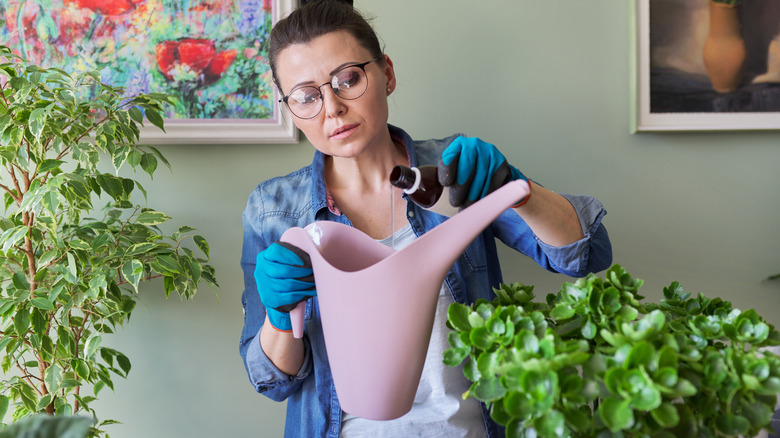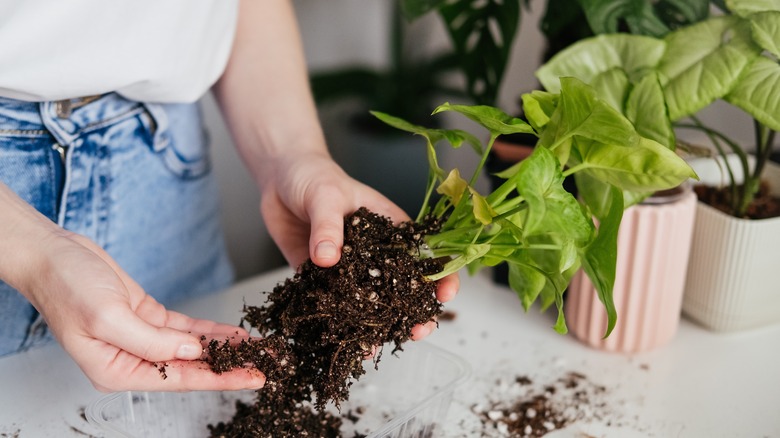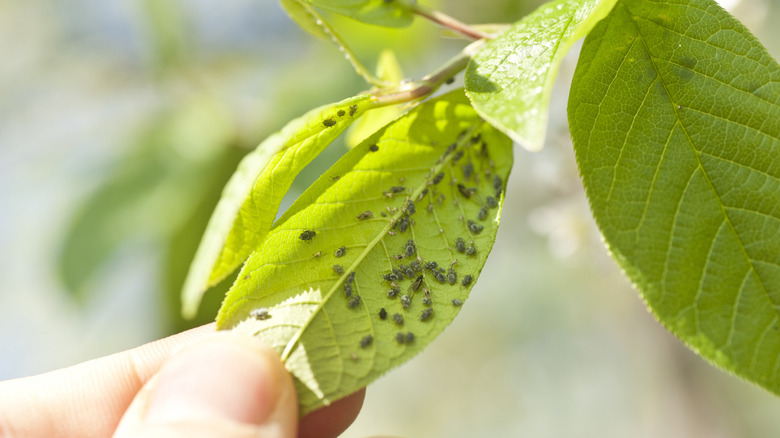Does Hydrogen Peroxide Kill Plants? Here's What You Should Know
While hydrogen peroxide is a popular product often used around the home, you may be surprised to learn there are also brilliant ways hydrogen peroxide can be used in your garden. Pesticide products containing hydrogen peroxide were first registered for use in the United States more than 45 years ago. Since then, its use in the garden has diversified tremendously. Some examples include use as a fungicide during seed germination and as a fertilizer for growth. However, using the correct concentrations of hydrogen peroxide is critical to prevent killing your plants.
To make a safe concentration for plants, a good ratio to keep in mind would be 1 cup of 3% hydrogen peroxide to 32 cups of water. This mixture is great to use on the soil near the base of the plant for root growth. The bottom line is that hydrogen peroxide is a natural household item and only adds oxygen to the soil as it breaks down. In order to kill your plants with the chemical, you would have to use very high concentrations, such as 10% hydrogen peroxide, without any dilution. This concentration can actually kill weeds... and if it can kill weeds, then it can kill your plants.
Hydrogen peroxide for use on root rot
While getting the correct concentration of hydrogen peroxide is important in plant health, so is knowing when and why to use hydrogen peroxide on your plants. If you have healthy plants and just want to increase size and growth, then the general concentration mentioned above is best. However, gardeners of all backgrounds will be happy to hear that hydrogen peroxide can combat root rot and bring your plant back to life.
Root rot is a common disease plants get when their soil is too compact or overwatered. If you notice that your plant's root system appears tangled or your leaves are turning yellow, you might need to add in some hydrogen peroxide. In doing so, the chemical helps alleviate root rot by aerating the soil and adding oxygen as it breaks down. To make the mixture, combine one part 3% hydrogen peroxide with two parts of water as a mixture. Then, pour it over the soil around the base of the plant, where the root system will benefit. This natural fertilizer will kill bacteria and prevent future issues by releasing oxygen into the soil near the root system.
Hydrogen peroxide for pest control
If you're looking for a more natural way to prevent and get rid of pesky aphids and mites on your plants, consider using hydrogen peroxide in a solution of water. Hydrogen peroxide is a simple hack that gardeners use to combat certain pests such as aphids. With its strong oxidizing effect, hydrogen peroxide can kill pests at any stage of their development, including eggs, larvae, and adult insects.
While we know that getting the concentration of hydrogen peroxide correct is the key to avoiding killing your plants, the same goes for pest control. To dilute the solution correctly as a pesticide, mix 2 cups of 3% hydrogen peroxide with 1 liter of water. Put the solution in a spray bottle and spray it on the plant where the pests are located. You can also use this concentration on the plants as a preventative pesticide that is organic and safe to use in the garden. Keep in mind, however, that some plants may still be sensitive to this DIY pesticide spray. Before applying the spray all over your plant's foliage for the first time, test it out on just a couple of leaves to see how they react and further dilute the solution as needed.


